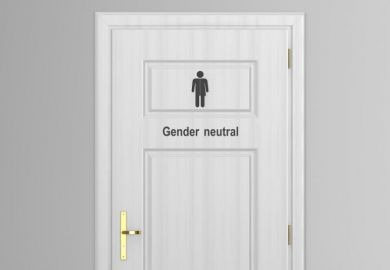Universities in Ontario could be the next higher education institutions to face punishment if they are deemed to fail to uphold free speech, after populist businessman Doug Ford was elected as premier of the Canadian province.
The centre-right Progressive Conservative Party of Ontario, led by Mr Ford, won the Ontario general election earlier this month after securing 40.5 per cent of the vote, ending 15 years of power for the Ontario Liberal Party.
Mr Ford’s main pledge concerning higher education, which is a provincial responsibility in Canada, was to expand the mandate of the Higher Education Quality Council of Ontario (HEQCO) to include a complaints and investigations process to evaluate violations of free speech.
Mr Ford’s party said that “postsecondary funding decisions will be tied to the results of the HEQCO’s investigations and, thereby, the willingness of university administrators to protect free speech for all students and faculty”.
However, Mr Ford, whose late brother Rob Ford was the controversial mayor of Toronto from 2010 to 2014, did not provide details on what he defined as a free speech violation.
Several Canadian universities have been embroiled in free speech controversies in recent years. Earlier this year, Wilfrid Laurier University, one of Ontario’s 22 public universities, came under fire after reprimanding a teaching assistant for showing a video clip of a debate on gender-neutral pronouns, even though no formal or informal complaint had been filed.
If Mr Ford’s policy is implemented, institutions in Canada’s most populous province – also including the University of Toronto and McMaster University – could face similar scrutiny over free speech to their counterparts in the UK and US.
The Office for Students, England’s new higher education regulator, has the power to fine providers that are seen to stifle free speech through “no-platforming” and “safe space” policies.
Several states in the US have also introduced legislation aimed at protecting free speech on campuses in recent months.
Creso Sá, director of Toronto’s Centre for the Study of Canadian and International Higher Education, suggested that Mr Ford’s announcement about tying funding to free speech was likely “just for show” to appeal to “cultural conservatives”, adding that the idea of HEQCO overseeing free speech was “completely absurd”.
“HEQCO has built a good track record of funding and performing policy-relevant research to inform the government. If he really goes this way, he will wreck HEQCO’s relationship with the sector,” he said.
Professor Sá added, however, that universities in Ontario “may have very lean years ahead”. While Mr Ford did not release a fully costed policy platform, he promised to find C$6 billion (£3.5 billion) in savings without cutting jobs.
“It is not unlikely that the ‘efficiencies’ that he has promised to find in running the government will entail cutting spending, and the postsecondary education budget could be vulnerable,” said Professor Sá.
Jim Woodgett, director of research at the Lunenfeld-Tanenbaum Research Institute in Toronto, said that the higher education sector is “watching to see where those cuts might fall” but suggested that the “sabre-rattling of the Trump administration at the recent G7 meeting has brought Canadian politicians of all stripes together, including premier-elect Ford, behind the prime minister, Justin Trudeau” – something universities might benefit from.
“Given the real possibility of an escalating trade war and Ontario’s particularly deep interdependence on US trade, the need to increase educational training, competitiveness and support of research and development for companies working together with the strong academic research sector may, optimistically, lead to greater investment,” he said.
Register to continue
Why register?
- Registration is free and only takes a moment
- Once registered, you can read 3 articles a month
- Sign up for our newsletter
Subscribe
Or subscribe for unlimited access to:
- Unlimited access to news, views, insights & reviews
- Digital editions
- Digital access to THE’s university and college rankings analysis
Already registered or a current subscriber?








